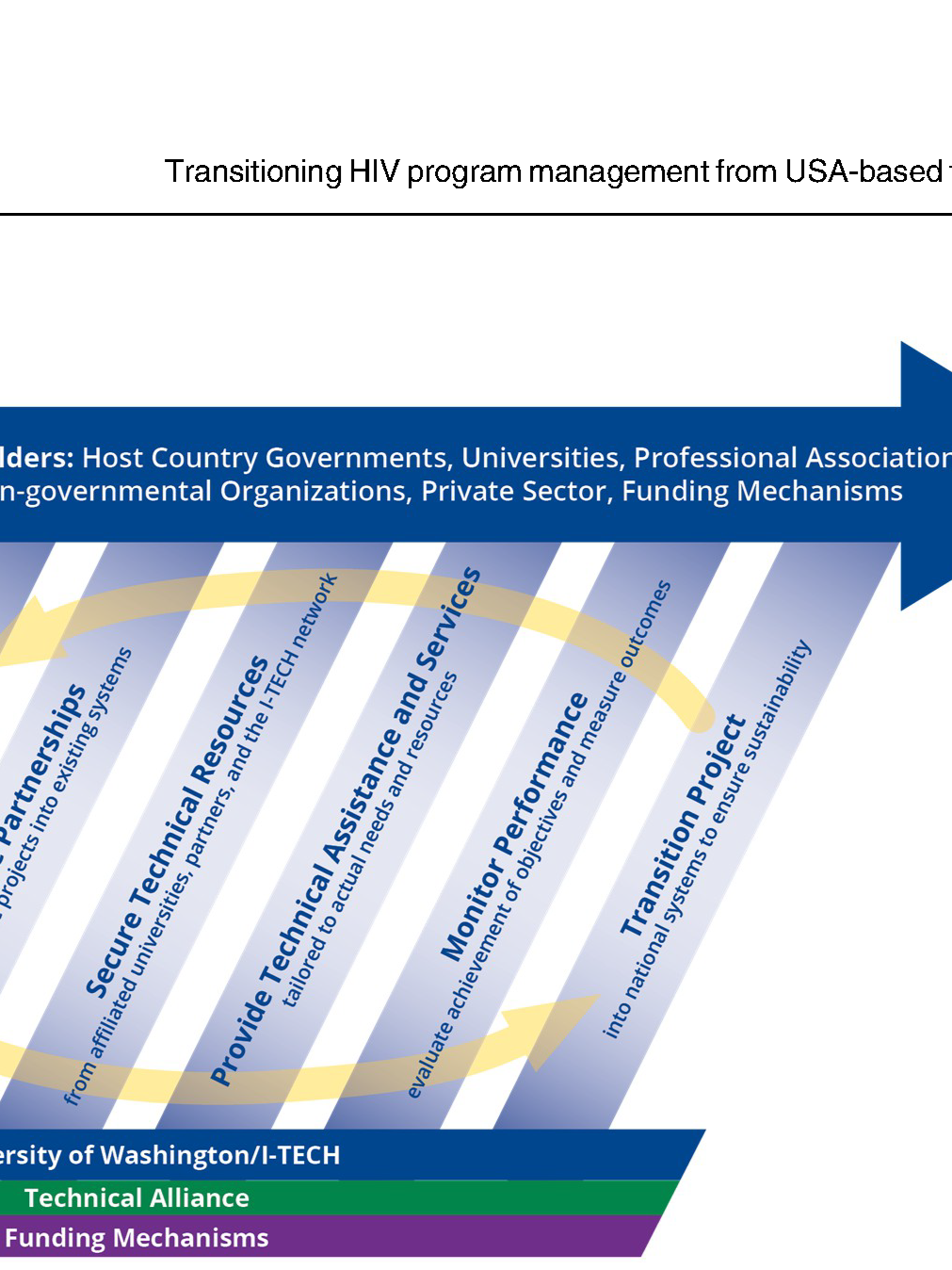Global Search
Despite the history of United States of America (USA)-based partners implementing global health programs in low- and middle-income countries (LMIC), future models for sustainable healthcare rely on local country ownership and leadership. Transition is the process of shifting programs towards country ownership, where local stakeholders plan, manage, and deliver health programs. Transition is not a singular event but a process which may include a phase where health programs are led and managed by local entities but still reliant on awards from international partners. This phase is scarcely described yet can impact long-term program sustainability if navigated poorly. This qualitative study examines the transition of Zimbabwe's voluntary medical male circumcision and HIV care and treatment services from management by a USA-based organization, the International Training and Education Center for Health (I-TECH), to management under a new Zimbabwean organization, the Zimbabwe Technical Assistance, Training and Education Centre for Health (Zim-TTECH). Findings suggest five themes to guide transition: 1) Develop a vision and empower leadership for change by delegating clear roles and supporting local ownership; 2) Plan and strategize for transition in a manner that accounts for historical context; 3) Communicate with and inform stakeholders to understand transition perceptions, understand barriers to transition, and enable open communications related to risks and benefits; 4) Engage and mobilize staff by constructing necessary infrastructure and providing technical assistance as needed; and 5) Define short-term and long-term success.
